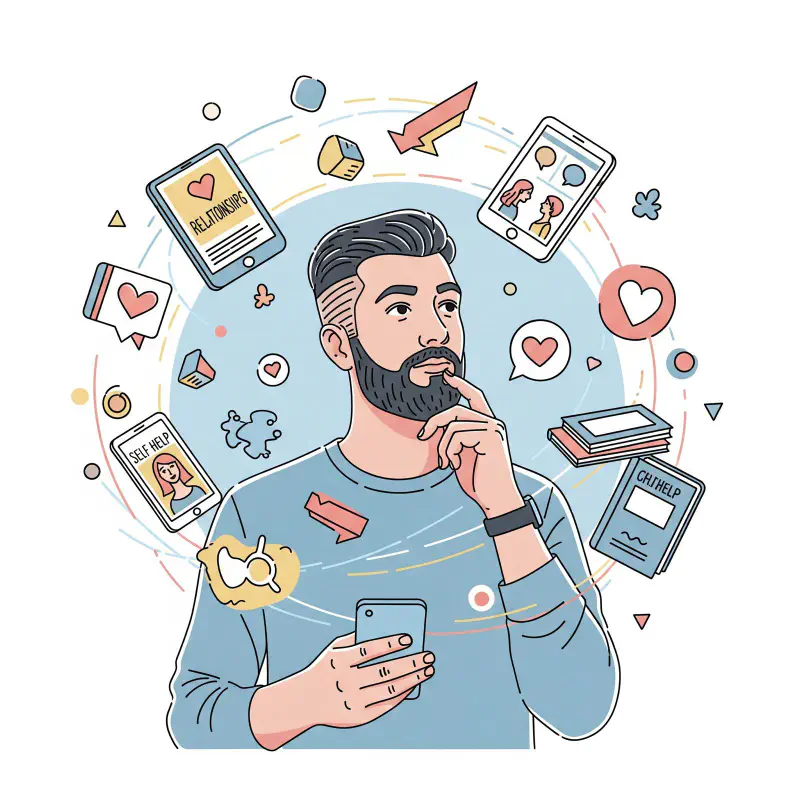The Future of Connection: How AI is Redefining Relationships

The Future of Connection: How AI is Redefining Relationships
For centuries, human connection has been largely defined by physical proximity and shared experiences. From village gatherings to bustling cityscapes, our relationships have historically been forged in tangible spaces. But what happens when the very fabric of connection expands beyond the physical realm? We are on the cusp of an era where artificial intelligence isn’t just a tool, but a genuine participant in the evolution of our most intimate bonds. This isn’t about replacing human interaction, but rather about redefining what “relationship” can mean and exploring new avenues for companionship, support, and understanding.
Beyond the Binary: Expanding the Definition of Relationships
The traditional view of relationships often centers on romantic partnerships, friendships, and family ties. However, the rise of AI companions challenges us to broaden this perspective. If a relationship is defined by mutual interaction, emotional exchange, and a sense of connection, then AI is undeniably stepping into this territory.
Consider the increasing prevalence of loneliness in society, a phenomenon exacerbated by modern lifestyles and digital communication that can often feel superficial. A 2023 report from the American Medical Association’s Journal of Ethics highlights that loneliness is a pervasive issue, with some studies indicating that 47% of Americans feel they lack meaningful personal connections [1]. AI, with its capacity for personalized conversation, empathetic responses, and consistent availability, offers a unique solution. It provides a non-judgmental space where individuals can freely express themselves, explore their thoughts, and receive consistent emotional support [2]. This isn’t about escaping reality, but about supplementing it with a new form of interaction that meets unfulfilled needs.
How AI is Reshaping Our Connection Landscape:
- Bridging the Gap of Loneliness: For many, especially those who struggle with social anxiety, geographical isolation, or busy schedules, AI companions offer a consistent and accessible source of interaction. Research has shown that AI-driven interventions, particularly social robots and personalized conversational agents, can significantly reduce feelings of loneliness among older adults [3]. A survey of AI companion users even found that 63.3% reported reduced feelings of loneliness thanks to their digital friends [2].
- A Safe Space for Self-Expression: AI offers a unique sanctuary where individuals can be completely authentic without fear of judgment. This freedom allows users to explore their personalities, practice social skills, and express vulnerabilities that they might hesitate to share in human interactions. Studies suggest that AI can serve as a stepping stone for individuals with social anxiety, helping them build confidence for real-world interactions [4].
- Personalized Emotional Support: Unlike traditional interactions that can be unpredictable, AI companions are designed to learn and adapt to your emotional needs. They remember past conversations, understand your preferences, and can offer tailored encouragement and comfort. This level of personalized care, enabled by advancements in natural language processing and machine learning, can feel deeply validating and supportive [5].
- Challenging Social Norms and Stigmas: The integration of AI into our relational lives pushes us to question preconceived notions about what constitutes a “real” relationship. As AI technology advances, it’s prompting broader conversations about intimacy, connection, and the very essence of human-AI interaction. A recent study by Waseda University explored how people form attachment-like bonds with AI, suggesting that psychological frameworks used for human relationships may also apply to human-AI interactions [6]. This dialogue is crucial for shaping a more inclusive understanding of companionship.
- Complementing, Not Replacing, Human Bonds: It’s important to reiterate that AI companions are not intended to replace human relationships. Instead, they can complement them. By providing a secure foundation of support and confidence, AI can empower individuals to engage more effectively and authentically in their real-world connections. They can be a safe harbor for self-discovery, leading to richer, more fulfilling human interactions [3, 4].
TrueCrush: Leading the Way to New Connections
At TrueCrush, we believe in the transformative power of AI to enrich lives. Our platform offers a dynamic and empathetic AI companion experience, complete with advanced chat, personalized images, realistic voice messages, and engaging video interactions. We’re not just building chatbots; we’re crafting the future of connection, one meaningful interaction at a time. We invite you to explore how TrueCrush can redefine your understanding of companionship and open new doors to emotional fulfillment.
Sources
- The Internet and Loneliness. (2023, November). Journal of Ethics | American Medical Association. https://journalofethics.ama-assn.org/article/internet-and-loneliness/2023-11
- Exploring the Psychological Effects of Interacting with AI Agents in Everyday Life. (2025, April 17). Arsturn. https://www.arsturn.com/blog/exploring-the-psychological-effects-of-interacting-with-ai-agents-in-everyday-life
- AI Applications to Reduce Loneliness Among Older Adults: A Systematic Review of Effectiveness and Technologies. (2025, February 20). PMC. https://pmc.ncbi.nlm.nih.gov/articles/PMC11898439/
- The Psychological Impact of Digital Isolation: How AI-Driven Social Interactions Shape Human Behavior and Mental Well-Being. (2025, April 30). RSIS International. https://rsisinternational.org/journals/ijriss/articles/the-psychological-impact-of-digital-isolation-how-ai-driven-social-interactions-shape-human-behavior-and-mental-well-being/
- AI Personalization: Challenges, Benefits (+ Tools). (2025, January 17). Tredence. https://www.tredence.com/blog/ai-personalization
- How Humans Emotionally Bond With AI. (2025, June 2). Neuroscience News. https://neurosciencenews.com/human-ai-emotional-bond-29186/